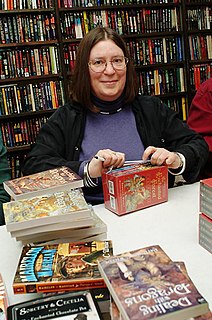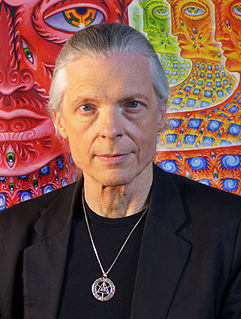A Quote by Meinrad Craighead
To recognize that mystery, we must go down deep into ourselves, into that place where the walls of our being are layered with our own memories. Remember that, as in any pool, when we cast one pebble we will see many, many concentric circles. One memory begets another and then another, building into stories.
Related Quotes
Traveling through the world produces a marvelous clarity in the judgment of men. We are all of us confined and enclosed within ourselves, and see no farther than the end of our nose. This great world is a mirror where we must see ourselves in order to know ourselves. There are so many different tempers, so many different points of view, judgments, opinions, laws and customs to teach us to judge wisely on our own, and to teach our judgment to recognize its imperfection and natural weakness.
The great secret of morals is love; or a going out of our nature, and an identification of ourselves with the beautiful which exists in thought, action, or person, not our own. A man, to be greatly good, must imagine intensely and comprehensively; he must put himself in the place of another and of many others; the pains and pleasure of his species must become his own. The great instrument of moral good is the imagination.
Because computers have memories, we imagine that they must be something like our human memories, but that is simply not true. Computer memories work in a manner alien to human memories. My memory lets me recognize the faces of my friends, whereas my own computer never even recognizes me. My computer's memory stores a million phone numbers with perfect accuracy, but I have to stop and think to recall my own.
At this crucial crossroads of history, we join to call on the world to recognize that violence begets violence; that nuclear proliferation benefits no one; that we can, we will, and we must find other ways to protect ourselves, our nations and our future: for it is not sufficient to have peace in our time, but, instead, we must leave a peaceful world to our children.
We who go a-fishing are a peculiar people. Like other men and women in many respects, we are like one another, and like no others, in other respects. We understand each other's thoughts by an intuition of which we know nothing. We cast our flies on many waters, where memories and fancies and facts rise, and we take them and show them to each other, and small or large, we are content with our catch.
This is the most important lesson you must learn about magic," Miss Ochiba went on. "There are many ways of seeing. Each has an element of truth, but none is the whole truth. If you limit yourselves to one way of seeing, one truth, you will limit your power. You will also place limits on the kinds of spells you can cast, as well as their strength. To be a good magician, you must see in many ways. You must be flexible. You must be willing to learn from different sources. And you must always remember that the truths you see are incomplete.
You will live to see men arise in power in the Church who will seek to put down your friends and the friends of our Lord and Savior, Jesus Christ. Many will be hoisted because of their money and worldly learning which they seem to be in possession of; and many who are the true followers of our Lord and Savior will be cast down because of their poverty.
Is it not enough that we cannot make one another happy, must we also rob one another of the pleasures that any heart may permit itself now and then? And name me a person who in a bad mood will be decent enough to hide it, to bear it alone, without destroying the joy around him. Is it not rather an inner dissatisfaction with our own unworthiness, a dislike of ourselves that is always associated with envy aggravated by foolish conceit? We see people happy and not made happy by us, and that is unbearable.
We leave something of ourselves behind when we leave a place. We stay there even though we go away and there are things in us we can find again only by going back there. We travel to ourselves when we go to a place. We have covered a stretch of our life no matter how brief it may have been but by traveling to ourselves we must confront our own loneliness. And isn’t it so that everything we do is done out of fear of our loneliness? Isn’t that why we renounce all the things we will regret at the end of our life?
The desire to transcend one's own ego boundaries, to share completely, even for a moment, the consciousness of another person must be a universal longing. It motivates many of our activities from taking drugs to making love, and lies behind the search for new ways of getting close to one another that is so intense in our society today.
But the point is, now, at this moment, or any moment, we're only cross-sections of our real selves. What we really are is the whole stretch of ourselves, all our time, and when we come to the end of this life, all those selves, all our time, will be us - the real you, the real me. And then perhaps we'll find ourselves in another time, which is only another kind of dream.
We must not confuse dissent with disloyalty. We must remember always that accusation is not proof and that conviction depends upon evidence and due process of law. We will not walk in fear, one of another. We will not be driven by fear into an age of unreason, if we dig deep in our history and our doctrine, and remember that we are not descended from fearful men – not from men who feared to write, to speak, to associate, and to defend causes that were, for the moment, unpopular.
In order to settle down in the quiet of our own being we must learn to be detached from the results of our own activity. We must be content to live without watching ourselves live, to work with expecting immediate reward, to love without an instant satisfaction, and to exist without any special recognition. It is only when we are detached from ourselves that we can be at peace with ourselves.



































